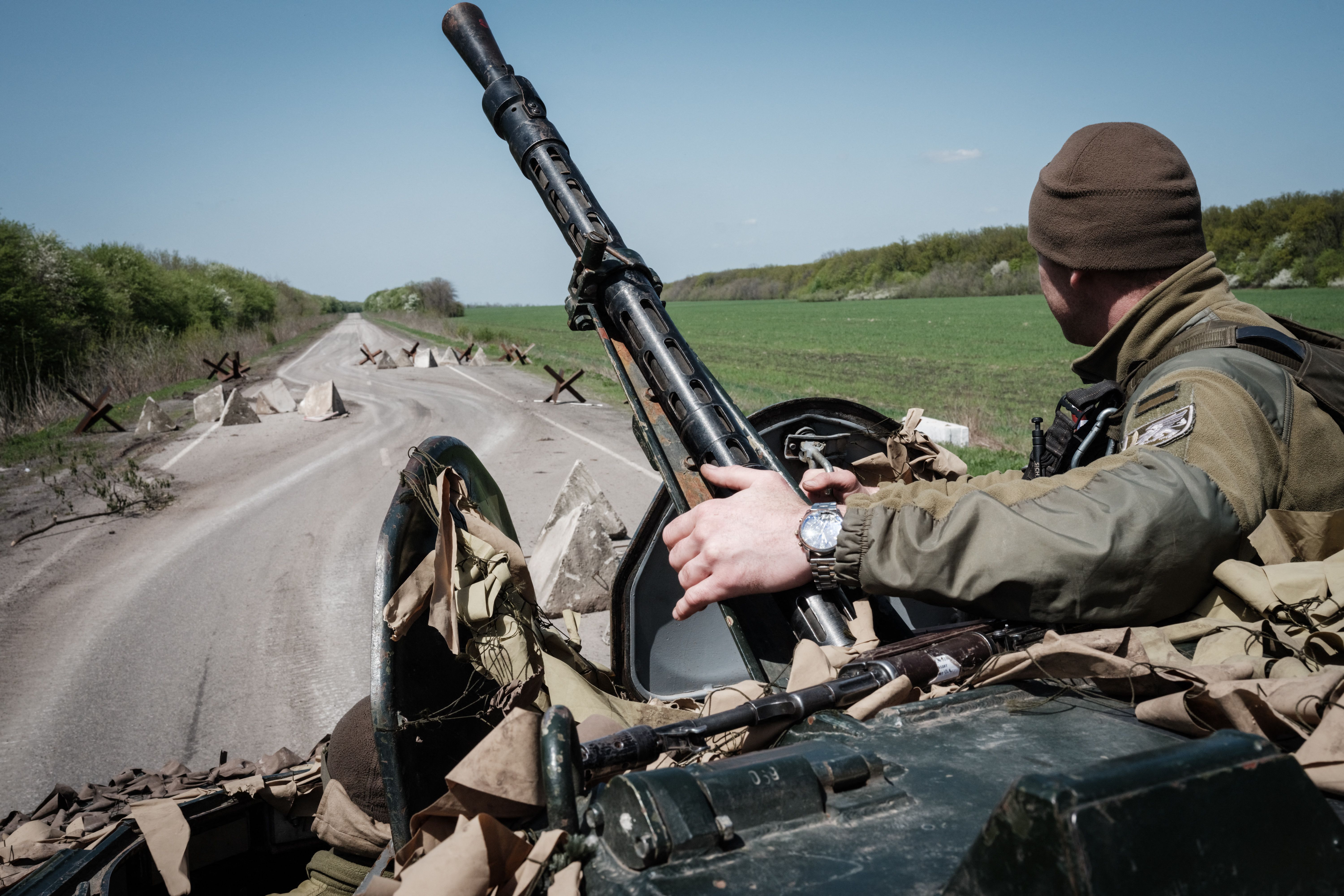The New York Times editorial, “The War in Ukraine Is Getting Complicated, and America Isn’t Ready,” published on May 19, immediately caused an uproar in Ukraine.
A veiled manifesto of appeasement from a newspaper known for its stellar coverage of Russia’s horrific invasion has disappointed many.
In the editorial, the New York Times editorial board argues that it’s too dangerous to assume that Ukraine can win the war. It says “Russia is too strong,” that Ukraine should make a “painful compromise” and give up some territories to Russia. The U.S. must understand the futility and stop “taunting” Russia, the editorial says. Meaning: Ukraine will lose anyway, stop helping it so it’s over faster.
In short, the editorial attempts to pass off appeasement and betrayal of the free world’s values as pragmatic reasoning.
Dark times have always shed light on those willing to compromise their values to preserve their daily comforts. Neither a French president, a German intellectual, nor an award-winning American newspaper are exempt from being wrong.
As a newsroom witnessing the war from inside Ukraine, we want to set the record straight.
Ukraine winning the war with Russia isn’t “unrealistic” or even “likely.” If we want the world to be anything like what we know it to be, then Ukraine winning is the only option.
And Western financial and military support for Ukraine is the only way to establish “long-term peace and security on the European continent” that the New York Times editorial board is rooting for.
Ukraine’s belief in its victory isn’t based on overconfidence. It’s based on necessity.
Any concession to Russia now will lead to another war sooner or later, while Ukrainians stuck in any region occupied by Russia will be tortured, raped, or killed. The New York Times is running story after story about the living hell through which Russia puts Ukrainian civilians in occupied territories. Meanwhile, its editorial board is suggesting that Ukraine should cede territories to Russia, where more atrocities will undoubtedly happen.
Appeasement isn’t the voice of reason. It’s fear and short-sightedness that will only make things worse, something we’ve all seen too many times in the past.
Allowing Russia to annex Crimea emboldened Russia to try to swallow the Donbas. When it invaded in 2014, carving up a sovereign state and killing civilians, the other world leaders’ tepid response made Russia’s bloody dictator feel empowered to do more.
It’s obvious that he’s been planning the full-scale invasion of Ukraine ever since. It’s often been said by world leaders and analysts that one of Vladimir Putin’s main miscalculations was assuming that the West would let him take Ukraine easily. It didn’t.
Now the New York Times is calling for the West to do what Putin expected and give up.
Make no mistake: If you appease a dictator, whose troops regularly indulge in war crimes, it will lead to a catastrophic geopolitical shift.
A Russian military victory would lead to land grabs and brutal conquest becoming the new norm. Allowing a power-hungry fascist dictatorship to succeed will encourage other dictatorships to try.
Telling the U.S. and NATO to ask Ukraine to sacrifice itself for the delusional hope of "long-term peace and security on the European continent" is the same as urging them to cede Taiwan to China. It's the same as averting eyes from the rape, torture, and what appears to be a planned-out genocide committed by the Russians in Ukraine and by the Chinese in Xinjiang.
It's a deal that shouldn’t be taken.
Nor are we forced to take it. The assumption that Russia, despite its colossal battlefield losses, is still a superpower with a potent military is a lie groomed by Russian propaganda over the past 15 years.
It’s a lie many in the West still believe, in spite of Russia’s modest-at-best progress in Ukraine and its losses of tens of thousands of soldiers and thousands of vehicles.
Russia has already lost over 40% of the territories it invaded since February. And yet, some continue to think that the Russian military is unbeatable.
The reality is that Russian corruption, theft, mismanagement, and lack of transparency led to the country’s military being poorly trained and equipped. Highly-motivated soldiers could have offset these problems. But Russia has no viable justification for the war it could feed its demoralized soldiers, who are often used as cannon fodder.
The Russian military is weak, its command structure is abysmal and it can very well lose the war to the smaller but much more motivated Ukrainian forces willing to defend their homes, families, and country until the last breath.
Meanwhile, following the New York Times’ advice will lead to more war, more destruction and a heavier burden on American people in the long run.
But perhaps one of the most striking features of the editorial is the complete lack of understanding of Ukraine and Ukrainians.
Ironically, the New York Times makes the same mistake that the Russians did when they attacked Ukraine in February. The Russians assumed that Ukrainians would welcome them or surrender. The New York Times editorial board should know better than to make similar assumptions about Ukrainians now.
If anything, the Gray Lady should learn from its mistakes, like when it ran a story about how modern and lethal the Russian military is, a month before the invasion would prove otherwise.
Because here’s the thing. Ukrainian society will never agree to any concessions. Those who don’t understand this simple fact don’t understand Ukraine at all, and perhaps shouldn’t share their uneducated speculations in one of the world’s leading media publications.
Even President Volodymyr Zelensky, however popular he is now, wouldn’t be able to persuade Ukrainians to concede. According to a recent poll by the Kyiv International Sociology Institute, 82% of Ukrainians believe that Ukraine should not give up territory for peace under any circumstances.
After seeing the atrocities committed by Russian troops in Borodyanka, Bucha and Mariupol, the Ukrainian people see very clearly that this is a war for survival against a fascist regime that denies Ukrainians the right to exist. Concessions would be a swift death sentence for thousands of Ukrainians. This fact apparently escapes the New York Times editorial board.
The newspaper doesn’t have to go far to find some clarity.
As professor Timothy Snyder pointed out in his spectacular guest essay, published on the same day as the controversial editorial, “so long as Nazi Germany seemed strong, Europeans and others were tempted. It was only on the battlefields of World War II that fascism was defeated.”
Ukraine will win, sooner or later, because no fascist state has ever truly prevailed over a free country.
The democratic world can make this victory come sooner and be less costly for the people of Ukraine and for the world. It can do so by stepping up military support for Ukraine and pressure on Russia.
Ukraine is fighting this war on behalf of the free world – to make sure it remains free. The free world must at least try to match the Ukrainians’ bravery.













